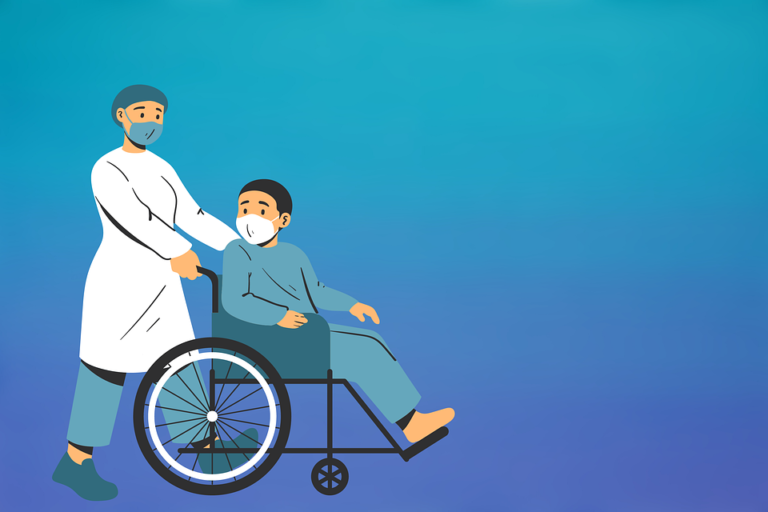Book Appointment Now

Elderly Education and Evidence-Based Care
Elderly Education and Evidence-Based Care examines the role of patient education in improving health outcomes for older adults with chronic diseases. Chronic illnesses such as diabetes, hypertension, and arthritis are prevalent among the elderly and often require complex, lifelong management. While medication remains a cornerstone of treatment, evidence suggests that patient education enhances self-management, compliance, and overall health status. Educating elderly patients empowers them to understand their conditions, adopt healthier behaviors, and actively participate in their care. This paper explores the benefits of patient education in elderly care, its evidence-based impact on health outcomes, and strategies for its implementation.
Get a custom paper help about EBP and education in elderly care
Order Custom Nursing Paper
Theoretical Framework of Reference
The integration of patient education in elderly care is supported by frameworks that emphasize self-management and behavioral change. The Health Belief Model (HBM) explains how individuals’ perceptions of disease severity, susceptibility, and treatment benefits influence their engagement in health-promoting behaviors (Champion & Skinner, 2008).
The Chronic Care Model (CCM) highlights the importance of patient-centered education in improving outcomes for chronic disease management (Wagner et al., 2001). This framework emphasizes the role of informed, activated patients in collaborating with healthcare providers to achieve better control of chronic conditions.
The Self-Efficacy Theory underscores the significance of building confidence in patients to manage their health independently. Evidence shows that patients who believe in their ability to monitor symptoms and make lifestyle changes are more likely to adhere to treatment plans (Bandura, 1997). These frameworks collectively guide the development of education programs tailored to the needs of elderly patients.
Benefits of Patient Education in Elderly Care
Evidence suggests that patient education significantly improves the health outcomes of elderly individuals with chronic diseases.
Enhanced Self-Management: Education equips elderly patients with the knowledge and skills needed to manage their conditions effectively. For example, teaching diabetic patients how to monitor blood glucose levels and adjust their diets leads to better glycemic control and fewer complications (Powers et al., 2016).
Improved Medication Adherence: Educating patients about the importance of medication adherence and potential side effects increases compliance and reduces the risk of adverse events. Elderly patients who understand the purpose and timing of their medications are less likely to miss doses or misuse prescriptions.
Reduced Hospitalizations: Studies show that elderly patients who receive education about their conditions and self-care strategies experience fewer hospital admissions and emergency visits (Lorig et al., 2001). This not only improves their quality of life but also reduces healthcare costs.
Increased Quality of Life: By addressing lifestyle modifications, symptom management, and emotional well-being, education programs enhance the overall quality of life for elderly patients.
Evidence-Based Strategies for Elderly Patient Education
To maximize the impact of education programs for elderly patients, evidence-based strategies should be employed.
Tailored Education: Programs should be customized to address the unique needs, literacy levels, and cultural backgrounds of elderly patients. Simplified language, visual aids, and practical examples enhance comprehension and retention.
Interactive Learning: Engaging patients through interactive sessions, such as group discussions and role-playing, improves understanding and encourages participation. Hands-on demonstrations, such as using glucometers or inhalers, build confidence in managing chronic conditions.
Technology Integration: Digital tools like telehealth platforms and mobile health applications offer opportunities for ongoing education and monitoring. For instance, apps that provide medication reminders or track symptoms can reinforce learning and support self-management.
Caregiver Involvement: Including family members and caregivers in education programs ensures a supportive environment for elderly patients. Caregivers can reinforce key messages, assist with complex tasks, and monitor adherence to care plans.
Follow-Up and Support: Providing regular follow-ups through telephone calls, home visits, or virtual consultations sustains the benefits of education programs. Continuous support ensures that elderly patients remain engaged and motivated in managing their health.
Challenges in Implementing Patient Education for the Elderly
Despite its benefits, patient education for elderly individuals faces several challenges.
Cognitive Decline: Conditions like dementia and mild cognitive impairment may limit patients’ ability to retain and apply health information. Adapting education strategies to include repetition, memory aids, and simplified instructions can address this barrier.
Health Literacy: Many elderly patients have limited health literacy, making it difficult for them to understand complex medical terminology. Using plain language and visual aids can enhance comprehension.
Accessibility: Mobility issues, lack of transportation, or limited access to digital tools may hinder participation in education programs. Offering in-home education or community-based programs can overcome these obstacles.
Resistance to Change: Elderly patients may be hesitant to adopt new behaviors or rely heavily on medication as their sole treatment. Building trust and demonstrating the benefits of education can encourage acceptance.
Conclusion
Elderly Education and Evidence-Based Care highlights the transformative potential of patient education in improving health outcomes for older adults with chronic diseases. By fostering self-management, enhancing medication adherence, and reducing hospitalizations, education empowers elderly patients to take control of their health. Guided by frameworks like the Health Belief Model and Chronic Care Model, evidence-based strategies such as tailored education, caregiver involvement, and technology integration ensure the effectiveness of these programs. Despite challenges like cognitive decline and health literacy issues, targeted approaches can overcome barriers and maximize the benefits of patient education. As healthcare continues to evolve, integrating patient education into elderly care will remain vital for improving quality of life and promoting independence among older adults.
References
- Bandura, A. (1997). Self-efficacy: The exercise of control. W.H. Freeman and Company.
- Champion, V. L., & Skinner, C. S. (2008). The health belief model. Health Behavior and Health Education: Theory, Research, and Practice, 45-65.
- Lorig, K. R., et al. (2001). Chronic disease self-management program: 2-year health status and healthcare utilization outcomes. Medical Care, 39(11), 1217-1223.
- Powers, M. A., et al. (2016). Diabetes self-management education and support in type 2 diabetes: A joint position statement of the ADA, AADE, and AND. Diabetes Educator, 42(4), 419-433.
- Wagner, E. H., et al. (2001). Improving chronic illness care: Translating evidence into action. Health Affairs, 20(6), 64-78.




